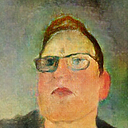Member-only story
‘According to Science’
Three words journalists need to stop using
Type “according to science” into a search engine, and it spits out more than 42 million results. Here’s a selection of some of the amazing things “science” has figured out:
- “The Exact Time to Dunk an Oreo, According to Science”
- “Here’s When Puppies are Most Adorable, According to Science”
- “Bald Men are More Attractive, According to Science.”
- “Why Cats Look Evil at Night, According to Science”
- “According to Science, Goats Like You More When You Smile”
The words “according to science” embody everything wrong with the way journalists write about research. They give the impression of unanimity when even ostensibly “settled” questions are rarely without controversy. They create the illusion that scientific knowledge is static when it is always in flux. They impart a uniform stamp of authority on work that might be bad science—or not science at all.
A staple of clickbait headlines, the phrase isn’t just found in tabloids and content mills. NPR has gotten in on the action with a story that promises to teach parents “How To Raise Brilliant Children, According to Science.” Even Scientific American can’t resist the urge to use the problematic attribution.
